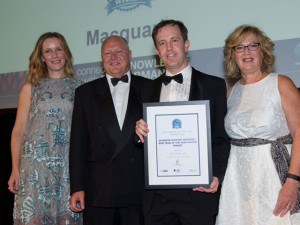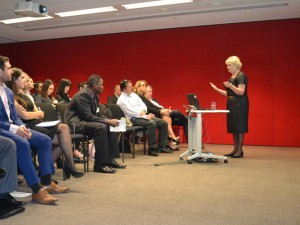The 360° Solution’s Vicki Writer has developed a fresh new approach to the context in which she believes financial advice can be delivered. This article suggests advisers, particularly risk-focused advisers, need to re-think how they provide value to their clients. Vicki is asking this challenging question: shouldn’t it be you who decides your remuneration?
The emergence of a new dawn in financial advice?
For years, our industry has been plagued with allegations of mistrust, misconduct and mis-selling.
The commentary has come thick and fast. High upfront commission rates, Approved Product List (APL) restrictions by dealer groups, the battle for shelf space, high lapse rates, churn, sustainability issues for the insurers and, of course, best interests in relation to the end consumer.
It was all of these things that prompted me to develop a new way of thinking. Having spent years researching global best practice across different industries, it became very apparent to me a number of years ago that a financial advice practice, and specifically a pure risk practice, could not possibly survive in the 21st century without fundamentally changing the way it does business.
The issue that I see with the current sales model is that there is no cash-flow, control or certainty. In a very large proportion of cases, the majority of an adviser’s remuneration is made off the back of the sale of a commodity. This ultimately means that the adviser has no control or certainty over their future because there is always someone else dictating how much a financial adviser is able to earn.
What level of control do you have as an adviser? What control do you have over the quality of products being sold, the policy definitions or even the level of service given to your clients by the life insurance company or fund manager? There is no control and, as a result, there is no certainty.
We know that the Internet is the world’s greatest price comparison tool and there is a major issue confronting every adviser – dis-intermediation. That is: a client will visit an adviser; the adviser will facilitate all of the work, research and investigation and provide the client with their recommendations, with all of this work being undertaken at the cost of the adviser (because at this stage, no payment has been made); the client takes this information and gets onto the Internet, or calls an aggregator or someone else, and gets a price comparison.
What happens now? Discounting of premiums is probably applied, different benefit structures presented and the client decides to go with the cheaper option. Sound familiar?
no-one can understand how they can see a professional adviser who does not charge for their time or their knowledge and expertise
Because there doesn’t appear to be a great deal of value added, the client does not see any value in the advice provided by the adviser because the options that have been presented to the client have been largely based on price. The client then takes all of the intellectual property and all information provided by the adviser and uses it to get a better price from another source, thereby creating this issue of dis-intermediation. This scenario has been happening for years and, if you’re an adviser, many of you would have found yourself in this very position.
This model makes no sense, and likely doesn’t make any sense to the end consumer. I know this, because I have spoken to end consumers and no-one can understand how they can see a professional adviser who does not charge for their time or their knowledge and expertise. Most of the issues surrounding the topic of charging fees actually relate back to the mindset of the adviser. You cannot charge a fee unless you feel you are adding value. Herein lies the root cause of the problem. Many advisers that I have worked with over the years do not believe that they have added value and can’t possibly begin to think about charging a fee because of this confidence issue.
I have no doubt that there will be people reading this, thinking that ‘you can’t charge a fee on risk products’. And I agree. You can’t. Certainly not with the current service model anyway – that is, sell a commodity that the client can get almost anywhere based on price.
Let’s put the situation under the microscope and look at it in a little more detail, so we can begin to notice all of the opportunities…
As an adviser, you can sift through the soft facts and sort through the detail to come up with a recommendation and Statement of Advice that meets the requirements of the regulator. This is a big deal.
As an adviser, you also sort through the complexities of your client’s present situation and translate these facts into meaningful conversations that the client understands. You add significant value.
As an adviser, you’re able to look at a TPD or trauma policy document and know exactly what the client is covered for, as well as all of the shortfalls of the policy that the client currently has in place. You provide the client with certainty and eliminate any confusion.
In virtually all instances, an adviser can take the worry and confusion out of a situation for a client and give them clarity and understanding about their existing circumstances and their future. You change people’s lives.
Why should you, as an adviser, not charge a fee for the value you bring to the table when you are dealing with your clients?
This brings me to another issue. In the majority of circumstances, you, the adviser, are paying for the parts of the process that you do not charge for:
- Fact-find – adviser subsidises and pays for that part of the process
- Research and investigation – adviser subsidises and pays for that part of the process
- Presentation – adviser subsidises and pays for that part of the process
- Sale of commodity – commission (only if case completes)
- Review and maintenance – adviser subsidises and pays for that part of the process
- Sale – commission (only if case completes)
Herein lies a major problem for many advisers. If the average cost to serve a client is around $2,400 (give or take a few hundred dollars) and it takes, let’s say, 10 hours to process a risk case from beginning to end, how much profit are you making, given all of your expenses?
Research that I saw a while back suggested that advisers actually lose money on up to 50% of their clients. How true is this for you?
The only way to be profitable and sustainable in the 21st century is for advisers to revisit their service proposition
There is no question – the service model that many advisers have in place now is dysfunctional and unsustainable. The current model outlined above cannot possibly be sustainable because of the subsidisation issue. As an adviser operating this way, you are almost forced into reviewing and moving your clients’ existing arrangements in order to generate an income and to survive.
It’s a self-perpetuating problem, and one that isn’t going to go away.
Unless we begin to think differently about the service that we offer and the value we bring to the table when it comes to working with clients, I fear that many advisers will leave this great industry.
We need to learn to look at our unique wisdom, the value that we offer, our strengths and our ideal client target market and, combined with the current sales process, we need to re package what we do, so that we can look to charge a fee for the value that we offer and differentiate ourselves.
In order to do this, advisers must strongly believe that they are adding value, and the client must be getting more value than they are today (which is a price-based commodity). With many of the product offerings across the market so similar, advisers need to look at ways of differentiating themselves and future proofing their business, in order to build their confidence so that they can move forward with clarity.
The only way to be profitable and sustainable in the 21st century is for advisers to revisit their service proposition and re-package what it is they do, so that they can differentiate themselves in a way that distinguishes them from their competitors.
Advisers interested in learning the methodology Vicki has applied in developing this unique process, or in attending her workshop to experience first-hand what she has built, and how it addresses the issues surrounding the current industry challenges, can touch base via email or via her website the360solution.com.au.

Vicki Writer has spent a significant amount of time developing a unique process called The 360◦ Solution™ which has been based on years of research into global best practice and three years as a participant in the Dan Sullivan Strategic Coach Program in the USA.
The program she has developed looks at a person’s life holistically, helps them to identify the changes they want to make across all aspects of their life and gives them a set of tools to build their confidence and create their future. Protecting their most valuable asset is a natural part of the discussion. Financial advice has been packaged in the program and follows a natural progression. Each stage in the process has been uniquely named and cannot be replicated.
Vicki says the program is unique, is based on her knowledge and wisdom and helps to address the dangers and risks facing us all. Because of the way it is structured, she says the program cannot be replicated, it cannot be competed against on price, and it certainly cannot be sold in a supermarket! She says it is a great example of how an independent income can be earned outside of the sale of the product.
Contact or follow the author: Website | Email | Facebook | LinkedIn



















